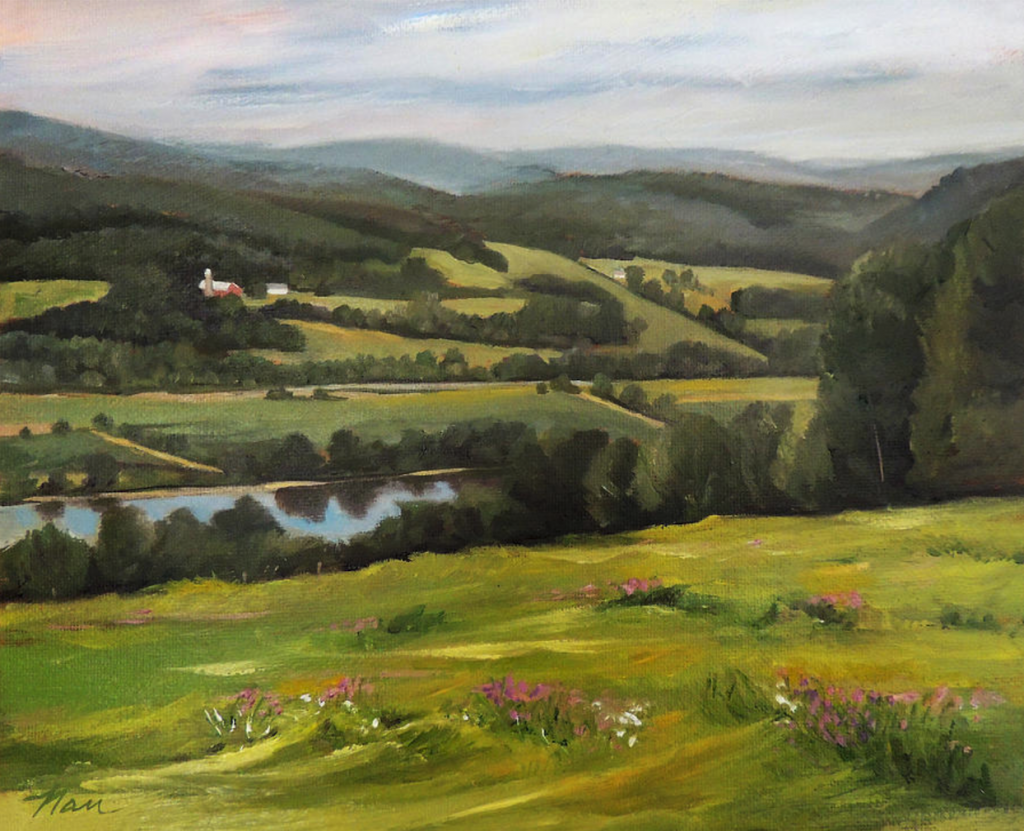
The Last Damn Time
She heard Ed’s heavy feet pound slowly up the porch stair and thought, he’s still brooding, still lumbering about in a daze. She smirked, thinking, you would expect a man his size to have more fortitude, but he never had much of that, he has a definite courage in his writing, you have to give him that, but he’s got no stomach for life’s little difficulties.She sat herself upright, put fresh paint on her drying brush, forced and held a smile to perhaps erase the frown she felt there.
The ancient planks of the porch groaned under his ponderous walk. The board they used to call the grouch gave a shriek of damnation. Ed cursed it right back, as he had a thousand times before, but half-heartedly, probably not even knowing he’d done it. He paused outside the door and sighed, characteristically not aware of how loud and how obvious he was.
Then he appeared in the doorway of her studio, his big shoulders sagging.
“How’s the weather, dear?” she asked brightly.
“Still fine,” he said.
“That’s good,” she said. “You won’t have to stay cooped up in here all day.”
“You ought to get out too,” he said.
“Maybe later. I want to work some more.”
He was nibbling a grass stalk, a male habit she had always found annoying. Furthermore, he had not showered or groomed himself lately. His hair was stiff and ludicrously awry. The gray stubble of his beard — it had startled her when she first saw it — made him look older than he was. She shook her head, thinking, boy, was I lucky to be rid of him.
“I don’t get why you want to paint today,” he said.
“I guess I just like finishing things I start, dear,” she said.
He turned so he was facing outdoors. He stopped nibbling and let his head bow. He gave another of his full-chested sighs.
Boy, what a ham, she thought.
She smiled — bemusedly, she imagined — and put a touch of paint to the canvas. It seemed to wick the painting into her, after hours of willing it to happen and failing. It filled her and became a complex sensation, a bodily knowledge of the shapes and distances, the balances and tensions, the places still whispering their need for specific color. And almost at once the artwork began to flow the other way, out of her and into the painting, filling and shaping it, bringing it closer to the point where she could say, I did it, it’s finished, today I did something fine.
When the concentration flickered, when she felt the world for a moment, she noticed that Ed was gone. But of course he would not still be there. Time never really stopped. In a matter of seconds the tranquility ebbed from her. Her painting arm was the last to know it, hovering with no clear purpose. She slumped in the chair.
Outside, the wind was blowing, masking other sounds — if there were any. Maybe everything already knew, the animals, the birds, even the insects. Perhaps the whole hilltop, the whole countryside, was brooding like Ed. But she was damned if she would take it that way. I’ve never been a crybaby and I’m not a crybaby now, she thought.
But she knew she would not get her focus back immediately. And she knew herself too well to force it. She had painted too much and fought an unsettled mind too often to deceive herself on that note. She knew what she could do and what she could not.